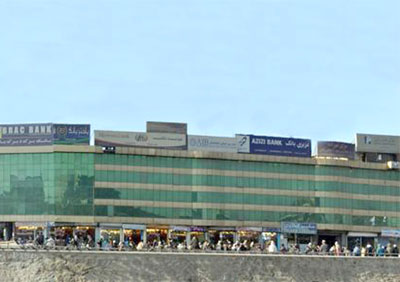The Money Exchangers Union in Sarai Shahzada, the biggest money exchanging market in the country, said on Monday that based on a decision by the Islamic Emirate, Boli market has been closed in Sarai Shahzada.
According to the union, a few days ago the Economic Commission of the Council of Ministers of the Islamic Emirate made a decision to close Boli market.
Boli is a market inside Sarai Shahzada where large amounts of money are exchanged, where also the value of the afghani against foreign currencies is being determined.
Along with money-exchanging shops, individual vendors also used to do business in the Boli market.
“There were problems in Boli. Some individuals (vendors) were spreading fake reports and fake exchang rates in Boli,” said Abdul Rahman Zirak, a spokesman of the union.
As the Boli market has closed, vendors have also been pulled out of Sarai Shahzada.
Meanwhile, a number of venders said the closure of Boli has led to dozens of vendors losing their jobs and will lead to problems determining the real value of the Afghani against foreign currencies.
“Now we cannot change our money into dollars or Pakistani rupees. To whom we should sell? Boli is no longer active,” said Farid Ahmad, a vendor.
“The Islamic Emirate has closed Boli market, while people are trying to make a living,” said Sayed Hashim, another vendor.
In the past months, especially in December when the afghani plunged in value against the dollar, Boli was also closed. However, the vendors were allowed to do business inside Sarai Shahzada market. Now, it is not clear when the venders will be allowed back to the market.
Meanwhile, the use of worn-out Afghan currency is an added problem to the larger issues of the collapsing Afghan economy.
Residents of Kabul expressed frustration over the use of the old and damaged banknotes, saying that their usage causes problems in business deals.
“There is a lot of worn-out currency in the market, particularly the 100, 50, 20 and 10 Afs bills are very worn,” said Samir, a shopkeeper. “The government should try to issue a good quality currency,” said Asadullah a Kabul resident.
Zia is a money exchanger who purchases the worn-out currency and then sells it to the government’s central bank.
“The bank doesn’t want to take the money from us. The bank says it doesn’t have the sufficient budget to buy the worn-out currency,” he said.
Some money exchangers called on the Da Afghanistan Bank to distribute new banknotes to the market.
“When we receive money, a big part of it is worn-out,” said Noorullah, a money exchanger.
“When we exchange dollars in return for Afs, the people argue with us and refuse to take the currency because it is very worn-out” said Aga Gul, another money exchanger.
“The worn-out currency is one the main challenges in the trade market in the current conditions in Afghanistan. This affects the circle of business,” said Sayed Masoud, an economist.
Some members of the money exchanger union of the Surahe Shahzada criticized the central bank for its poor management regarding the Afghan currency.







